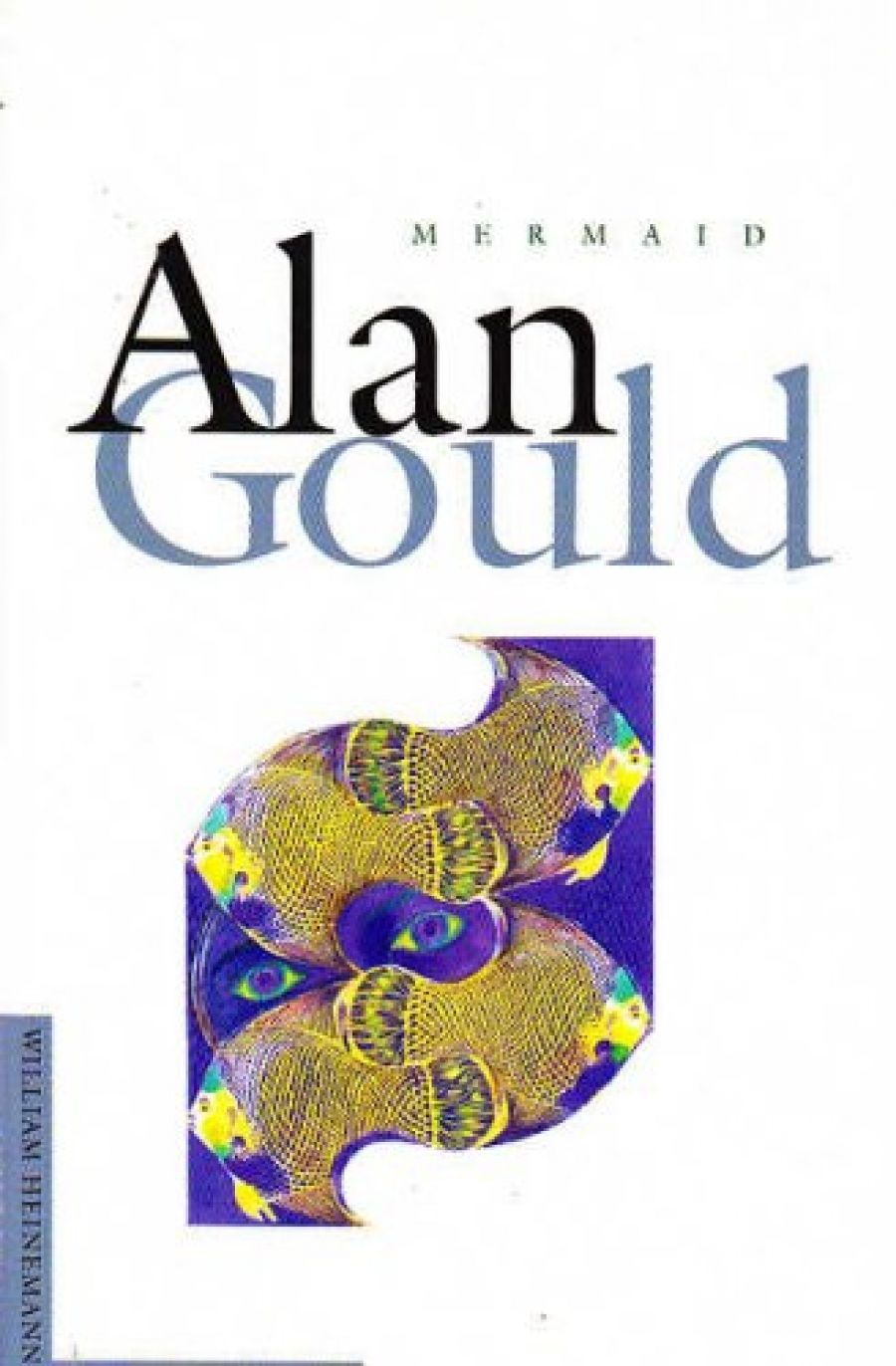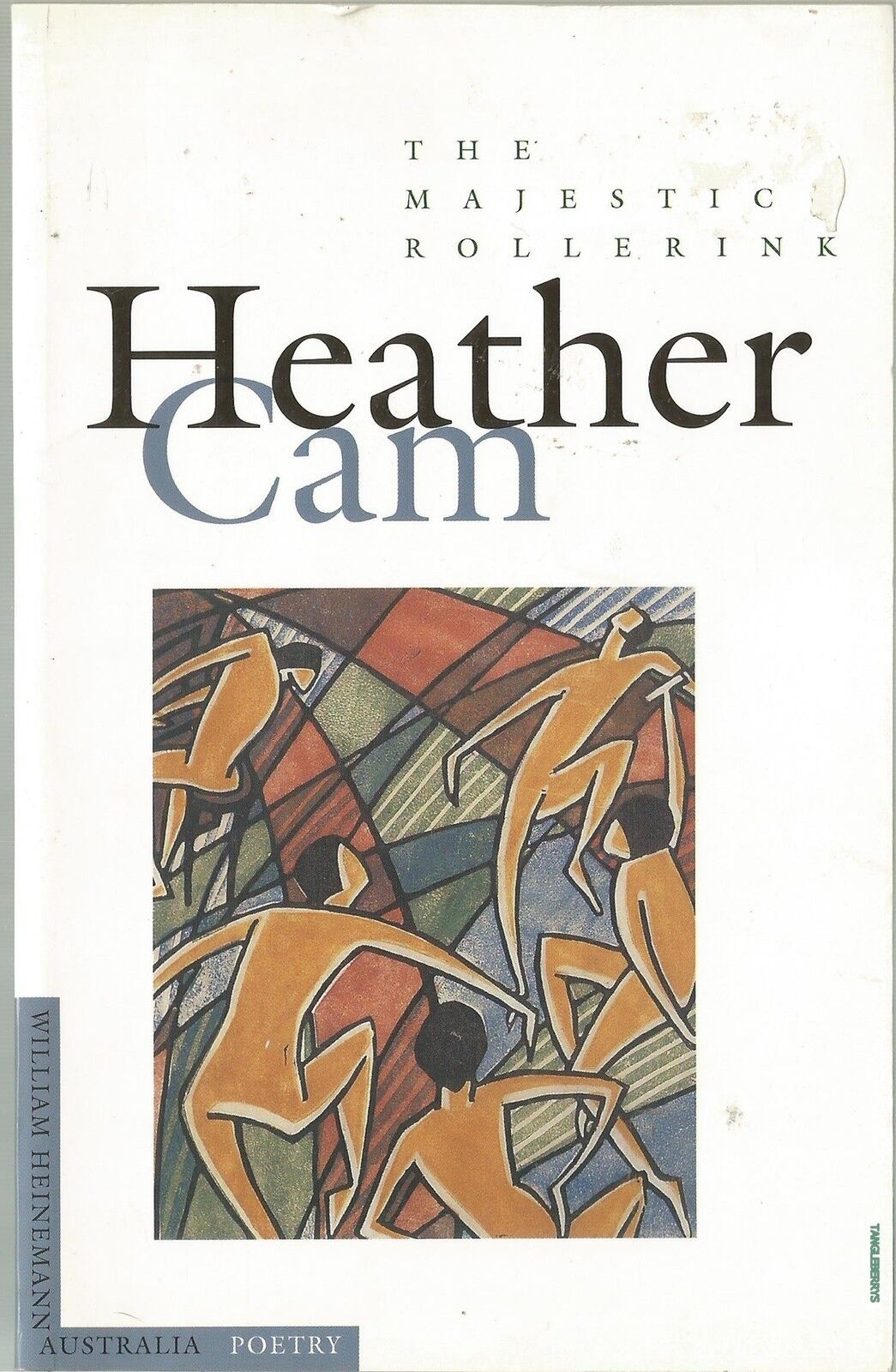
- Free Article: No
- Contents Category: Poetry
- Review Article: Yes
- Article Title: Port of Oddity
- Online Only: No
- Custom Highlight Text:
‘Nothing odd will do long’, said Johnson (that great friend of reviewers). If we begin by positing Aland Gould as an odd poet (that is, more than merely eccentric or self-conscious), then whether Johnson is correct about oddness depends on the second half of his observation: ‘Tristram Shandy did not last’. No doubt ABR readers smile at such a sentiment; but if so, then the question becomes whether or not Gould is odd enough.
- Book 1 Title: Mermaid
- Book 1 Biblio: Heinemann, $16.95 pb, 77 pp
- Book 1 Cover Small (400 x 600):

- Book 2 Title: The Majestic Rollerink
- Book 2 Biblio: Heinemann, $16.95 pb, 85 pp
- Book 2 Cover Small (400 x 600):

I fancied that my life
should move
among momentous sights;
my life had several things to prove,
I quit the harbour lights
laden deep with coal or grain
in ship then further ship.
Seas rose as though they meant to say ...
then let their meanings slip.
The rolling, elusiveness of the sea is an apposite image for Gould’s own poetry, even when – as it often is – landlocked.
Similarly, the dramatic lyrics often refuse to announce explicitly the context in which they are set, leaving one all at sea. For example, ‘That Move from Shelter’ begins: ‘Laughing, we had made a dash for shelter / into some vast workshop ... ’and continues in a semi-pastoral manner for nineteen lines. One is sharply brought up with ‘Our berets, tunics, were rain-darkened’. The poem is dramatizing a moment in a war, and the choppers and bodybags may well lead the reader to think ‘What am I doing here?’. This may be the whole point, but it is a risky way of making it and it is the kind of risk which Gould takes repeatedly.
This is not inherently negative. Poems such as ‘Skagen Elegy’ and ‘One Sunday’ take risks to wonderful effect. Other poems (‘Canberra poems’ they might be termed) dramatise the disillusionments of professional power-mongering. The references to ‘sullen packs of lobbyists’ and the various forms of cynicism again leaves (at least this reader) with the sense of the highly-wrought – the factitious even – standing out from the mundane context of ‘life’, just as a model ship might be said to do so.
No matter how much Gould writes about other matters, he is, like Conrad, inevitably associated with the sea. In Mermaid this is reinforced by the inclusion of ‘The Calms: An Illustrated Sequence’, illustrated by the poet. Again, the individual clarity of these highly detailed drawings of sailing ships seems to add up to overall obscurity; the ‘illustration’ is tangential, metaphorical. These poems are challenging, and (it doesn’t always follow) worth the challenge. Again the adjective ‘Jamesian’ comes to mind. In ‘A Patch of Sunlight will Come to Find Me’ a sailor imagines a future conversation with ‘two well-meaning visitors’, two ladies who come to quiz him about his metaphysical failings. He dismisses metaphysics whilst engaging in it. The sense of obscurity amidst clarity is in fact central to the sequence: a schooner will ‘remain on the skyline for hours, like a thought / that reaches just short of / an ampler comprehending’ (‘The World Allows’).
Hence the oddity of this book. Despite the drive towards dramatization, towards the concrete, and the detailed illustration of ships, the work ultimately seems to divorce itself from what we blithely call the real world: the ships are unpeopled, the monologues unspoken. The line drawings, like Gould’s poetic lines, are clear, but clear lines in themselves do not make for clarity. Any number of lines may be clearly delineated though the overall pattern remains indecipherable. It is context (the space beyond the page) which allows that. Gould’s oddity – or challenging nature – is in so persistently (and often artfully) denying this to the reader.
Very different is Heather Cam’s second collection, The Majestic Rollerink. This is odd only in one sense. While Rossini’s observation that Wagner had lovely moments but awful quarters of an hour may be understandable, it is odd to find short lyric poems having ‘lovely moments’. Cam is remarkable in that she can span the extremes of register from the bathetic to the sublime within the space of a few lines.
Cam is at home with the usual range of contemporary interests: sexual dramas played out across the diffuse but monotonous urban stage; the intriguing displacements of travel; and the epiphanic moments of the domestic scene, peopled by spouses, children and parents. All of this is tempered by a sense of human vulnerability, the various ‘rehearsals / for loss, severance, / sudden reversals’ (‘Crossing the Park’). This sense of vulnerability most often illustrates Cam’s strengths.
Cam also has a taste for satire. As is often the case for the modern sensibility, the moral high-ground is often the actual low-ground. For instance, ‘Office Views’ asks why the view of Sydney Harbour with its ‘Ken Done pleasure craft and shimmering city’ should be esteemed higher / than this sea of corrugated iron ... rippling off to a Jeffrey Smart horizon / in industrial Erskineville?’ This rhetorical question suggests a tendency for the satire to be too comfortable with itself. In ‘Queen Junket’ the king and queen professors are shown elbowing aside ‘Regard for Others, Hard Work, Fair Play’.
One also gets the sense that Cam has been told – as if by a teacher – to ‘write a poem about a cough; or putting on makeup; or going to the dentist’. Consequently, a number of these poems seem to be fillers and the book, like so many poetry books these days, could have done with a little more editing. Ironically, one of the weakest poems is ‘Dear Editor’: ‘I ambush my critic, / my Ideal Reader, / just before bedtime, / when defences are lowest, / resistance least, shadows kinder, / probability of intimacies increased’. This is something Cam relies on from her real readers too often; a sense of ‘shared intimacy’ which may be effective or specious depending on one’s mood or temperament.
Cam’s main strength is metaphor and a number of poems are simply extended metaphors. For instance, from ‘Seven Afflictions’:
Purr-fect me, puff-ball me,
so why at times do I gag mid-stride?
Dubious centre of attention,
as I choke on this cud,
this gob of me, me, me.
Recovered, I’m again pampered puss,
full throttle,
with her collar, her bell and her label
engraved ‘Selfishness’.
Despite the greeting-card pun at the beginning, this is most effective, and shows how Cam is a poet of concentration rather than discursiveness; metaphor rather than narrative.
In tone Cam probably sits half way between Kate Llewellyn and Rhyll McMaster; certainly she ranges from the cloying to the caustic. One gets the sense that she sometimes over-extends herself, that she is, indeed, trying to be odd; for when the best of her poems come off they do so with an unhurried grace, a sense of making the odd, ephemeral moment a lucid, lasting one.


Comments powered by CComment